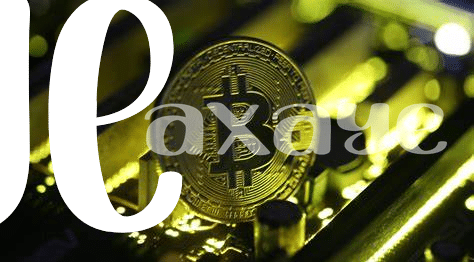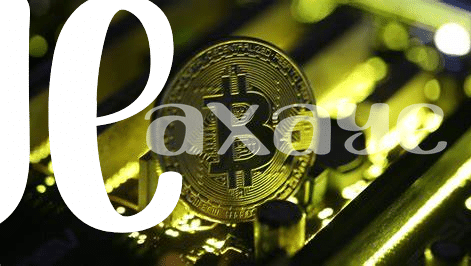Legal Implications of Bitcoin Transactions 📜

Bitcoin transactions have sparked a revolution in the digital economy, disrupting traditional financial systems and raising intriguing legal questions. The innovative nature of cryptocurrencies like Bitcoin has forced regulators worldwide to grapple with how existing laws apply to this novel form of transaction. From taxation to consumer protection, the legal implications of Bitcoin transactions are multifaceted and continue to evolve as this technology gains mainstream acceptance. As individuals and businesses increasingly embrace the benefits of cryptocurrency, navigating the legal terrain surrounding Bitcoin transactions becomes paramount for ensuring compliance and mitigating risks.
International Regulations and Challenges 🌍
Global consensus on the regulation of Bitcoin transactions poses notable challenges, as differing approaches among countries can complicate cross-border transactions. The lack of standardized international regulations contributes to uncertainties for businesses and users alike. Additionally, the dynamic nature of cryptocurrency technology necessitates agile regulatory frameworks to address emerging issues effectively. Balancing innovation and risk mitigation remains a key aspect in the ongoing development of regulatory measures to oversee Bitcoin transactions worldwide. The evolving landscape of international regulations underscores the need for collaborative efforts to establish coherent and adaptable frameworks that promote transparency and security in the digital asset space.
Role of Smart Contracts in Dispute Resolution 💡

Smart contracts offer a revolutionary approach to dispute resolution in Bitcoin transactions. These self-executing contracts are encoded with predefined rules and automatically execute actions based on the agreed conditions. By utilizing blockchain technology, smart contracts ensure transparency and security in transactions. In the realm of dispute resolution, smart contracts streamline the process by eliminating the need for intermediaries, reducing costs, and expediting resolutions. Additionally, their immutable nature provides a reliable record of agreements, offering a more efficient and trustworthy mechanism for resolving disputes in Bitcoin transactions.
Moreover, smart contracts can be tailored to include predefined dispute resolution mechanisms, such as escrow services or multi-signature requirements, further enhancing the security and reliability of transactions. As the adoption of blockchain technology continues to grow, the role of smart contracts in dispute resolution is poised to become increasingly essential, revolutionizing the way conflicts are managed in the realm of Bitcoin transactions.
Privacy Concerns and Data Protection 🔒

Privacy concerns and data protection in Bitcoin transactions are of paramount importance as individuals seek to safeguard their personal information in the digital realm. With the decentralized nature of cryptocurrencies, ensuring the security and confidentiality of data becomes a pressing issue. As transactions are recorded on the blockchain, there is a need to address potential vulnerabilities and protect sensitive details from unauthorized access or misuse. Additionally, regulatory frameworks play a crucial role in establishing guidelines for data protection and addressing privacy concerns in the ever-evolving landscape of digital currencies.
In an era where digital identities are increasingly valuable commodities, the implementation of robust data protection measures is essential for maintaining trust and security in Bitcoin transactions. As users navigate the intricate web of blockchain technology, understanding the implications of privacy risks becomes imperative for safeguarding personal information. By exploring innovative solutions and advocating for transparent practices, the Bitcoin community can enhance data protection standards and foster a more secure environment for digital transactions.
The Future of Decentralized Arbitration 🚀
Decentralized arbitration is poised to revolutionize the way disputes are resolved in Bitcoin transactions. By shifting away from traditional centralized systems, this approach offers increased efficiency, transparency, and accessibility. Through the use of blockchain technology, decentralized arbitration provides a secure and immutable platform for parties to seek fair resolutions outside of traditional legal frameworks. With the potential to streamline processes and reduce costs, this emerging trend in dispute resolution is set to shape the future landscape of Bitcoin transactions.
As we look ahead, the embrace of decentralized arbitration heralds a new era of empowerment for users within the cryptocurrency ecosystem. By fostering trust and cooperation through innovative mechanisms, this model holds the promise of fostering greater confidence in engaging in Bitcoin transactions. Through transparent and community-driven approaches, the future of decentralized arbitration holds the key to promoting accountability and fairness in resolving disputes, ultimately paving the way for a more robust and resilient digital economy.
Empowering Users through Transparent Mechanisms 🔍

Users can be empowered through transparent mechanisms that provide clarity and confidence in Bitcoin transactions. By implementing open and easily accessible processes, individuals can better understand the steps involved in dispute resolution and have increased trust in the overall system. Transparent mechanisms not only guide users through potential issues but also educate them on their rights and responsibilities within the transaction process. This level of openness fosters a sense of empowerment and accountability among participants, ultimately leading to a more secure and efficient ecosystem for Bitcoin transactions. Through transparency, users can actively engage in the resolution process, ensuring fairness and reliability in every interaction.🔍
insert link to legal consequences of bitcoin transactions in pakistan with anchor legal consequences of bitcoin transactions in north macedonia:legal consequences of bitcoin transactions in north macedonia
